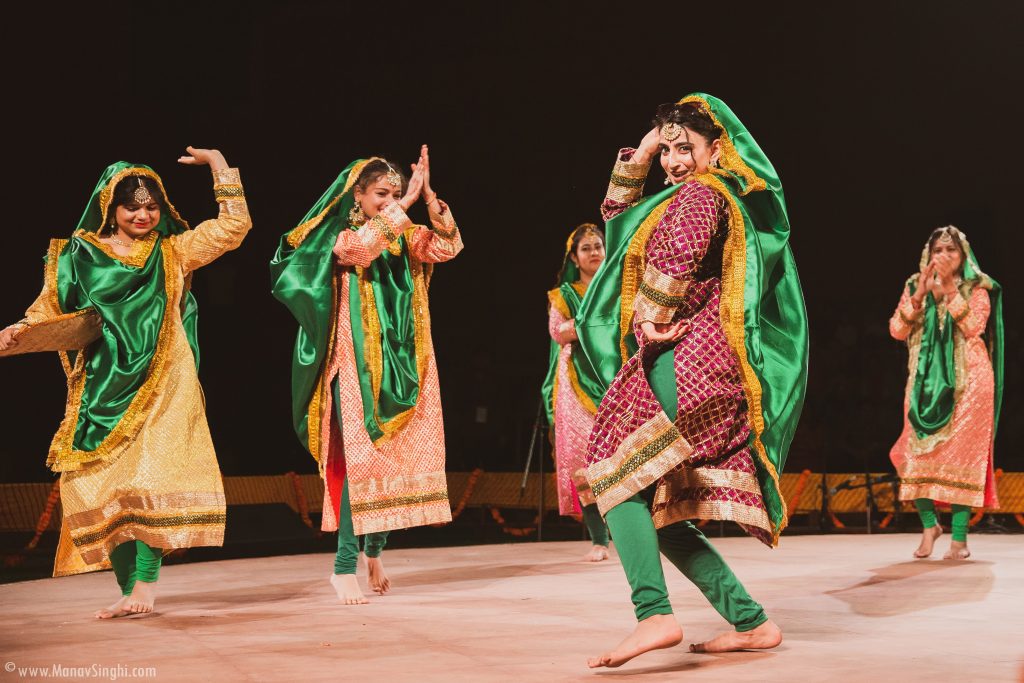Context:
Recently, the Government of India honored Romalo Ram, a Dogri folk dancer from Jammu, with the prestigious Padma Shri award.
About Dogri Folk Dance:
- Style: Originating from the Duggar region of Jammu, the Dogri folk dance beautifully epitomizes the distinct cultural identity of the Dogra community.
- Group Dynamics: Typically, a collaborative effort, this dance form sees a group of artists coming together. The main (lead) performer not only dances but also sings, while others will support in beats using instruments such as chimta and drums.
- Social gathering and occasions: Dogri folk dance holds significant importance in various social gatherings, celebrations, and functions infusing a festive ambiance and symbolizing communal joy and spirit.
- Variety in Performance: The dance form exhibits diverse variations, with some performances involving both women and men, while others are exclusively presented by women. The use of colorful traditional attire enhances the vibrancy of these cultural displays.
Dogri Language:
- Geographical Distribution: Predominantly spoken in the Jammu region of Jammu & Kashmir. Also, Dogri has smaller speaker communities in western Himachal Pradesh, northern Punjab, and north-eastern Pakistani Punjab.
- Official Recognition: Since 2003, Dogri has been recognized as one of India’s 22 scheduled languages and also included in one of the five official languages in Jammu & Kashmir.
- Writing and Script: Dogri was historically written in the old Dogra Akhhar script, which was later modified by Maharaja Ranbir Singh into Dogra Akkhar (which did not gain popularity). Presently, Devanagari is the official script for the Dogri language.
- Cultural Significance: With a rich literary tradition encompassing poetry, fiction, and dramatic works, Dogri plays a crucial role in preserving the cultural and linguistic heritage of the Dogras
- Literary Contributions: In 1873, the Sanskrit classic Lilavati was published in translated into the Dogri language.
- Poets & Periodicals: Notable poets like Kavi Dattu have made significant contributions to Dogri literature. Literary periodicals such as “Shiraza Dogri” (by Jammu & Kashmir Academy of Art, Culture, and Languages) promote Dogri’s works.
- Official Status: Designated as an “independent modern literary language” by the General Council of the Sahitya Academy, Dogri attained national language status in India following its recognition in the constitution in 2003.

